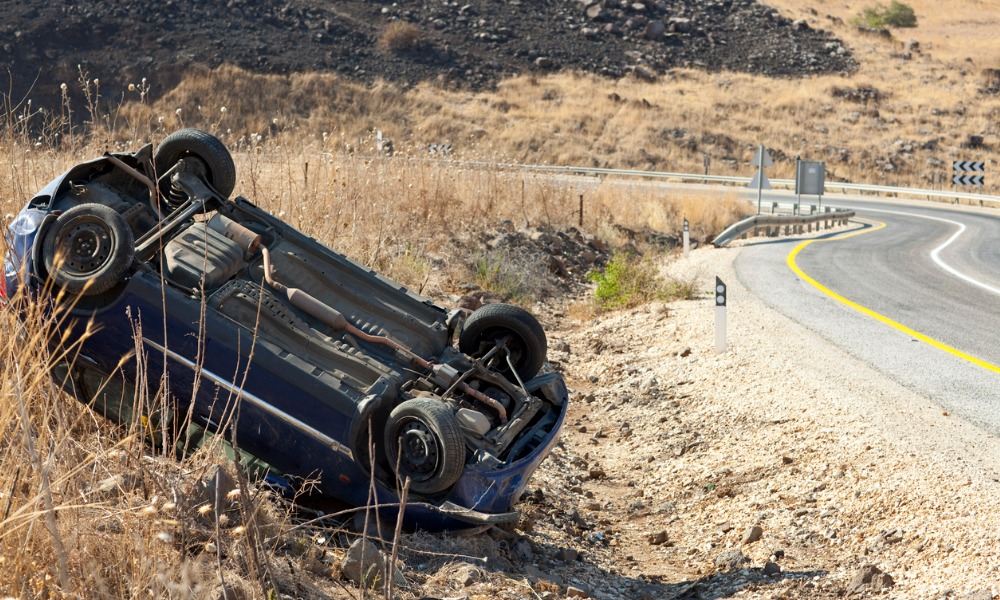
Trial judge assumed that 'drifting' was intentional, but evidence wasn't definitive on that

The British Columbia Court of Appeal has ordered a re-trial of a guilty verdict handed down to the driver of a jeep involved in an accident that killed one passenger and seriously injured two others.
In R. v. Rogers, 2022 BCCA 346, Brennan Rogers was driving three friends in his jeep to a campsite near Deroche, BC. Rogers lost control of the jeep and it plunged down a steep embankment on the right side of the road. One passenger died at the scene and two others were injured. Rogers was found guilty of dangerous driving causing death and two counts of dangerous driving causing bodily harm. The trial judge ruled that Rogers had intentionally tried to “drift” or fishtail his vehicle at a turn in the road, and that this attempt amounted to a marked departure from the standard of care expected of a reasonable driver in the circumstances.
Rogers appealed the judgment, arguing that the convictions were the product of a miscarriage of justice because the trial judge had misapprehended the facts. The Crown, on the other hand, asserted that even if there were errors of fact in the judge’s reasons, they were only technical and were harmless given the weight of the evidence against Rogers. The Crown also said that the evidence before the trial judge demonstrated that Rogers had been attempting to e “drift” his vehicle and that he had been aware of the risks associated with such conduct.
The trial judge ruled that Rogers’ evidence was “self-serving and in polar opposition” to the available photographic evidence, the expert evidence, and witness testimony. After considering the totality of the evidence, the judge concluded that the Rogers’ jeep had been driven in a manner that was “objectively dangerous.”
Case law states that a miscarriage of justice occurs if an appellant can demonstrate that his conviction depends on a misapprehension of the evidence and that misapprehension goes to “the substance rather than to the detail” of the trial court’s reasons. The appeal court explained that the essential question in cases where miscarriage of justice is raised is whether the irregularity in question was “severe enough to render the trial unfair or to create the appearance of unfairness.”
The appeal court acknowledged that the evidence at trial could have supported the guilty verdicts against Rogers. However, the appeal court could not say that those verdicts would be the same if certain errors had not been made, such as the adverse inference drawn by the trial judge regarding Rogers’ credibility, even though he was not given an opportunity to testify and be cross examined about what he had said to the authorities at the scene of the incident.
Furthermore, the trial judge stated that Rogers told a passenger to “hang onto the dog” that was also in the vehicle in the moments before the accident. According to the trial judge, this statement demonstrated that Rogers intended to “drift” the vehicle. However, the appeal court found that Rogers’ statement did not point to any particular period “before the accident.” Consequently, the appeal court concluded that the evidence was unclear as to whether in fact the request to hold on to the dog had been made just before the car fishtailed or at some other point.
The court also found that the trial judge described the expert evidence as establishing that the vehicle must have gone over the embankment either because of the intentional drifting of the vehicle or excessive speed. Although the accused had denied both, the judge said there was no other explanation for the rollover other than the accused had been attempting to drift the vehicle. The appeal court, however, said it was not clear that any consideration was given to the possibility that the fishtailing or drifting may have been accidental – a possibility that expert evidence had even left open.
The appeal court said that the question at the end of the day is whether the finder of fact is left with a reasonable doubt on all the evidence as it stands – even if one is left in doubt by the evidence of the accused. The court concluded that a retrial was required because the guilty verdicts against Rogers would not necessarily be the same had the errors and irregularities in the trial judge’s analysis not occurred.